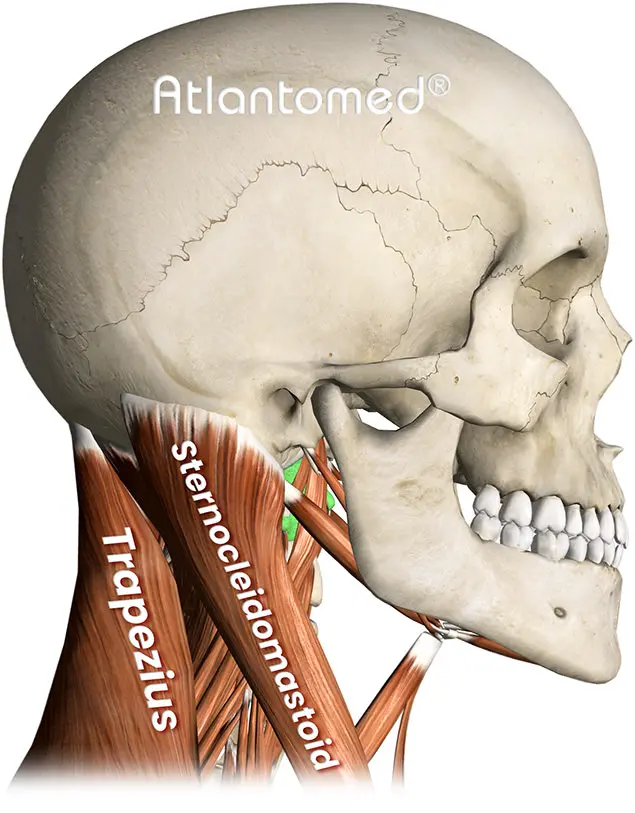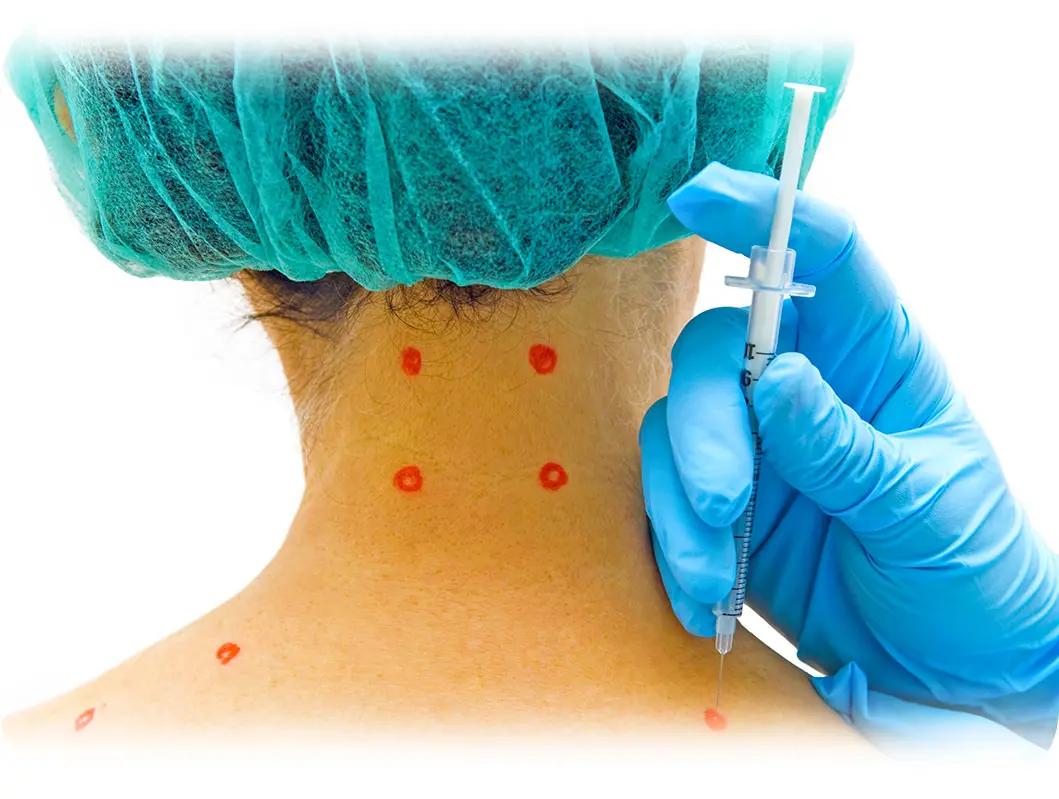Tension Headache: Discover Why
Tension headache is not just a headache: it is a debilitating condition that affects millions of people every day. But why does it occur and, most importantly, why does it seem so difficult to treat in a resolutive way?
The term tension headache refers to the most common type of headache. Patients with this condition experience significant stiffness in the cervical and shoulder muscles. This stiffness causes pain that radiates from the neck to the temples, with symptoms varying from person to person.
Despite the extensive literature on tension-type headaches, finding a truly effective solution remains challenging.
To address the root of the problem, one must ask the right question: what causes this recurring and hard-to-resolve cervical stiffness that leads to tension headache?
How Does Tension Headache Develop?

Several muscle groups play a role in the static alignment of the head. A misalignment of the first cervical vertebra leads to incorrect support of the head on the spine.
To counteract the misalignment of the Atlas, various muscle groups in the shoulders and neck act compensatorily, striving to keep the head as perpendicular as possible to the spine.
The eye axis and the organ of balance are heavily involved in this regulation, making constant efforts to remain level on the horizontal plane.
This continuous compensatory effort can cause the neck muscles to stiffen, leading to a vicious cycle: overstrained muscles become increasingly rigid and start to ache. At this point, the cervical musculature stiffens further, leading to a chronic muscle contracture. The pain, initially localized, becomes continuous and radiates to the skull, turning into a tension headache.
The sternocleidomastoid muscle, a head rotator present on both sides of the neck, will be asymmetrically contracted. This condition not only alters the neck's biomechanics and head movement symmetry but also causes unilateral cervical pain.
The trapezius is a large, quadrangular muscle that extends from the superior nuchal line, along the medial edge of the scapula, to the lower part of the dorsal spine. Uneven weight distribution of the head generates tension along the trapezius muscle chain, manifesting as pain that radiates to the scapular region.
The consequence of cervical muscle hardening is compression, with subsequent irritation, of numerous nerve endings that emerge from the spine. The result is often a muscle-tension headache.
Among the most affected nerves is the greater occipital nerve, which innervates the back of the head. This nerve branches from the spinal cord between the Atlas and the Axis and continues through various superficial layers of occipital muscles.
The irritated nerve sends pain signals to the brain, radiating from the neck to the back of the head, manifesting as a tension headache.
Rest can slightly alleviate the symptoms, but even minimal strain on the neck muscles is enough to reignite the pain. If this condition persists for a long period, it is referred to as chronic tension-type headache.
The Medical Solution to Tension Headache

Although conventional medicine recognizes muscle tension as the main cause of tension headache, the proposed solutions do not go beyond the use of muscle relaxants, analgesics, or injections. These are purely palliative measures, with temporary effects and no real curative capability. Furthermore, prolonged use of these substances is known to cause serious side effects.
Recently, medicine has even attempted to legitimize the practice of injecting substances such as bot-uli-num toxin to relieve headache symptoms. Bot-uli-num toxin is one of the most powerful natural poisons in the world, so it is easy to imagine the harmful effects that this substance can generate in the long term.
A look at the faces of actors who use it for cosmetic purposes is enough: they look like zombies!
The problem does not find a real solution, even when consulting physiotherapists or manual therapists. These professionals, while capable of identifying the muscle tension responsible for tension headache, do not have the necessary tools to address and resolve the root cause of the problem, which is the misalignment of the Atlas.
A manual massage, no matter how much effort the practitioner puts into it, does not generate enough energy to reach and adequately release the deeper structures, which is essential for the vertebra alignment process.
The harsh reality is that millions of patients shuttle between doctors, specialists, and therapists of all kinds, without finding a real solution to their problem. Tension headache and migraine keep coming back, indifferent to any treatment attempt. You probably know similar cases, or worse, have personally experienced this frustrating situation.
AtlantoMed's Solution for Tension Headache
Instead of relaxing muscles with chemical preparations, AtlantoMed uses AtlantoVib to "shake" the cervical muscle bundles so intensely, deeply, and effectively that the muscles compressing and irritating the nerves, causing neuralgia, have no choice but to relax.
But AtlantoMed does much more. In addition to relaxing the deep cervical muscles that cause tension headache, it eliminates the main cause of cervical imbalance, which is responsible for the recurrent stiffening of these muscles.
If there is now a different solution, more elegant and respectful of the body, why persist in using methods that offer only temporary relief or, worse, poison the body with chemicals in an attempt to treat tension headache? With AtlantoMed, it is finally possible to achieve long-lasting relief from tension headache, as confirmed by numerous testimonials.
Video Testimonials on Tension Headache
Stories after Atlas realignment
Some Forum Testimonials
- Pattina: Muscle-tension headache: two and a half months have passed...
- Gianfranco43: Migraine and tension headache: I was dead... now I am alive...
- Sebastiano: Migraine, muscle-tension headache, and neck pain disappeared...
- Raffaele: Chronic headache nearly resolved!
- Diego Crosara: Muscle-tension headache: I feel better
- Grace58: Continuous headache
- Miaa: Tension headache
- More Testimonials Tension headache
What People Say About Us
Beware of those who disguise a simple cervical manipulation as Atlas realignment and those who offer low-quality imitations of our method. The results speak for themselves: over 10,000 testimonials and reviews in various languages make us unique. Click to discover opinions, ratings, and authentic experiences shared by those who have experienced Atlas correction with Vibro-Resonance AtlantoMed:
Scientific Literature on Muscle-Tension Headache

- Physical therapy for patients with tension-type headache.
- Cross-sectional area of the rectus capitis posterior minor muscle in chronic tension-type headache.
- Management of atlanto-occipital and atlanto-axial joint pain.
- Cervicogenic headache.
- Cervicogenic headache: the neck is a generator.
- Connection between the spinal dura mater and suboccipital musculature.
- Correlation between chronic headaches and the rectus capitis posterior minor muscle.
- A proposed etiology of cervicogenic headache.



